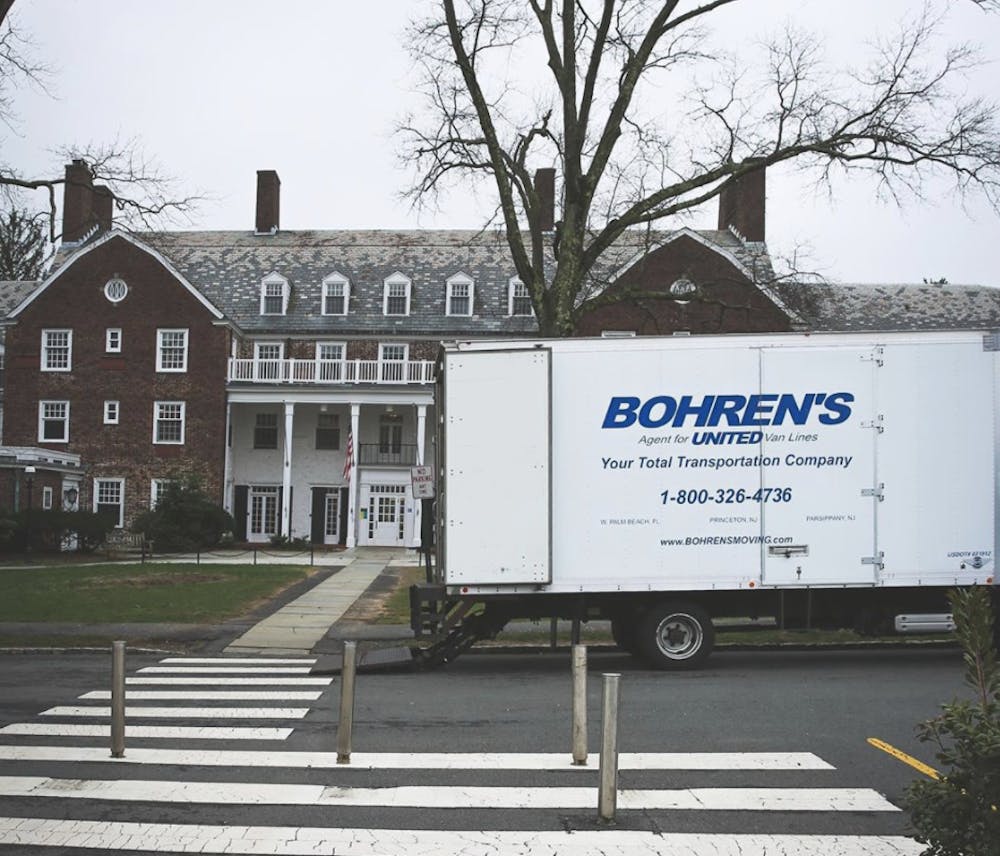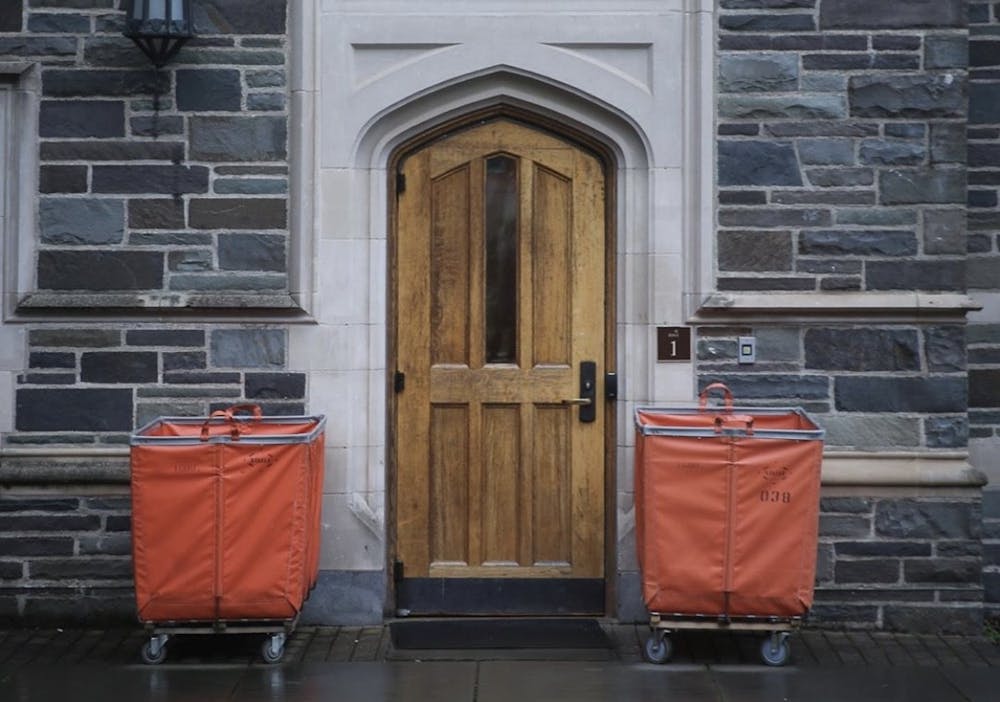Students remaining on campus will be relocated to Bloomberg Hall, Scully Hall, and rooms in Whitman College, according to “a new plan for housing through the semester’s end” outlined by Dean of the College Jill Dolan.
Additionally, Forbes College will be assigned to Mercer County and the State of New Jersey for emergency housing, Dolan announced in an April 15 email.
“We are working hard to be ready should the need arise, all the while making sure we continue to be able to provide for the needs of our students on campus,” University Deputy Spokesperson Michael Hotchkiss wrote in a statement to The Daily Princetonian. “University staff have been working to prepare Forbes College as a space that could be made available to the state if needed.“
The relocation of students is not new — students living in the Forbes Main Inn who were permitted to stay on campus were asked to move when Forbes Main Inn was designated for students in self isolation on March 25, and similar orders were given to Butler students a week later.
The recent directive, however, affects all students on campus in an effort to concentrate the on-campus population and ease the pressure on Building Services.
“After careful consideration of public health guidelines, we’ve decided that the best way to keep you and the staff who are caring for you safe and healthy is to consolidate the students who remain on campus into a smaller group of dorms,” Dolan wrote.
Agnes Robang ’22, a student living in Bloomberg Hall, shared concerns that consolidating students could increase the risk of people infecting physical spaces and make it more difficult to practice social distancing.
“I already use my knuckles to push all the elevator buttons,” she said.
Statistics provided by Hotchkiss show that only about 30 percent of beds in Bloomberg will be filled once students have been moved.
According to Hotchkiss, these will be the final building occupancy levels until the end of the semester:
- Bloomberg Hall – 65 beds out of 220 beds
- Scully Hall – 72 beds out of 267 beds
- 1981 Hall – 18 beds out of 116 beds
- Baker Hall – 17 beds out of 129 beds
- Wendell Hall – 16 beds out of 122 beds
Yoseloff and 1967 Halls will be used as quarantine and isolation spaces for University students who fall ill. To reduce the stress on Building Services, 1901-Laughlin, 1915, 1927, 1937, 1939, 2 Dickinson, Brown, Campbell, Cuyler, Dodge-Osborn, Edwards, Foulke, Gauss, Hamilton, Henry, Holder, Joline, Walker, Wilcox, and Witherspoon Halls will be emptied and no longer serviced by University staff.

In a statement to ‘Prince,’ Hotchkiss wrote that in most cases one student is occupying each room — including rooms typically used as doubles.
“Some students have a private bathroom or share an attached bathroom with one other student. In areas with hallway bathrooms, those facilities are shared by no more than four same-gendered students,” he added.
The relocating students were given from Friday, April 17 at noon until Friday, April 24 at noon to move to their new room assignments, according to Hotchkiss. Within that period, each student had an assigned 24-hour period to obtain the assistance of a professional mover. For students who wished to relocate on their own, orange carts were made available at Dillon Gymnasium beginning on Friday, April 17.
“We know how difficult this spring has been for those of you who’ve needed to remain on campus,” Dolan wrote in her email. “Moving will be inconvenient, but we hope you understand that this plan is necessary to keep you comfortable and healthy and our campus staff safe.”

Forbes will be temporarily turned over to the county state governments to potentially shelter those in need of housing during the COVID-19 outbreak.
Courtesy of @lonelycovidtiger / Instagram
In her message, Dolan “encourage[d] anyone who may be able to return home to do so.” Additionally, she noted that students remaining on campus through the end of the semester should expect to move out on May 22 and 23, but that a review process for students requiring emergency shelter over the summer will be taking place this week.
Dolan also announced that Forbes College “will be assigned to Mercer County and the State of New Jersey for emergency housing for those working nearby who need a secure place to stay and/or who need to be quarantined.”
“All colleges and universities across the state of New Jersey, including Princeton, have been asked to consider providing dormitory space to support the state’s COVID-19 response,” Hotchkiss wrote in a statement to the ‘Prince.’
State officials had been considering using hotels and college dorm rooms as overflow space since last month, and similar requests have been issued to other New Jersey universities. Seton Hall University has been preparing for hospital overflow since late March, and Rutgers University recently asked students to remove their belongings from residence halls so their dorms could “be used to meet needs created by the coronavirus outbreak.”








